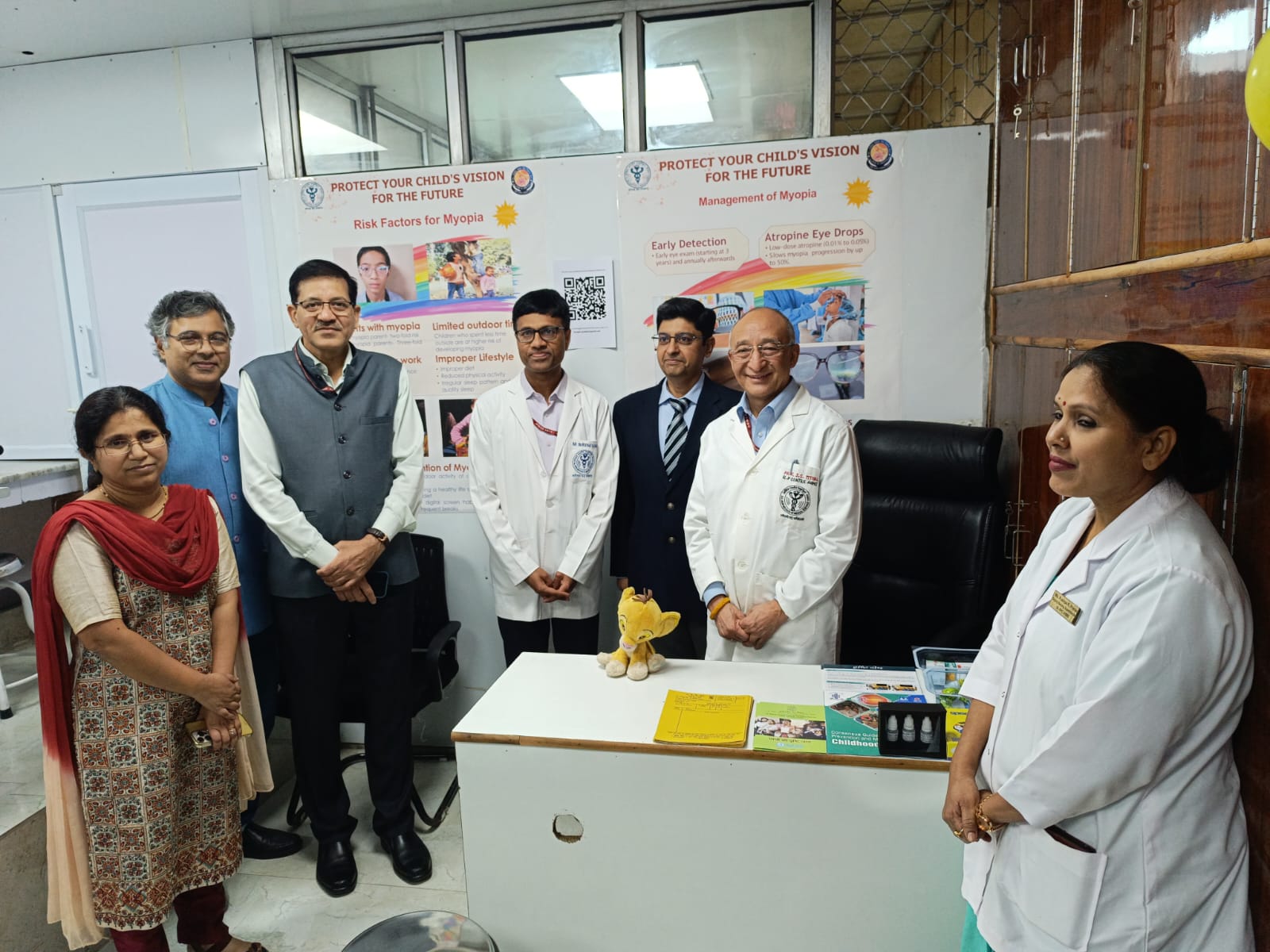
Delhi-AIIMS Starts Myopia Clinic to Address Growing Childhood Vision Concerns
The All India Institute of Medical Sciences (AIIMS), Delhi, has launched a dedicated Myopia Clinic at its RP Center, aiming to provide comprehensive care for children affected by this increasingly prevalent condition.
This initiative comes at a critical time when childhood myopia, or nearsightedness, is emerging as a significant global health concern.
Childhood myopia, commonly known as nearsightedness, is a vision condition where distant objects appear blurry while nearby objects remain clear.
Though it may seem like a minor inconvenience at first, myopia is rapidly emerging as a significant global health challenge, particularly among children. The condition often progresses with age, potentially leading to severe complications if left unmanaged.
The prevalence of childhood myopia has reached alarming levels. Currently, about one in five children worldwide are affected, with some East Asian regions reporting up to 80% of teenagers and young adults as myopic.
Projections suggest that by 2050, nearly half of the global population will suffer from myopia, with a significant portion experiencing high myopia—a condition associated with increased risks of severe vision loss.
Experts now describe progressive childhood myopia as a lifestyle disease, driven by factors like limited time outdoors, excessive screen exposure, and a family history of the condition. Children spending less time in natural daylight or engaging in activities such as prolonged screen use, reading, and close-up tasks are at higher risk of developing the condition.
The dangers of progressive myopia extend far beyond impaired vision. Without timely intervention, the condition can lead to serious complications such as retinal detachment, glaucoma, macular degeneration, and cataracts in later life. These risks highlight the critical importance of early detection and effective management.
Addressing the progression of childhood myopia requires a multifaceted approach. Regular eye examinations are crucial, particularly for school-aged children, to detect and manage refractive errors early. Lifestyle changes, such as encouraging children to spend at least two hours outdoors daily in natural light, can play a significant role in reducing the risk of progression.
Minimizing screen time is another vital component of prevention. Experts recommend strict guidelines for screen usage based on age, with children under two years avoiding screens entirely and older children having regulated exposure for educational or recreational purposes.
Encouraging proper reading habits, such as maintaining an adequate distance from books and screens and adopting correct posture, also helps protect young eyes.
Managing myopia in children has advanced significantly, with options such as low-dose atropine eye drops demonstrating effectiveness in controlling progression.
Additionally, specially designed glasses and contact lenses can reduce peripheral defocus, slowing the elongation of the eyeball—a critical factor in myopia progression.
As childhood myopia continues to rise, initiatives like the Myopia Clinic at AIIMS serve as a beacon of hope. By fostering early detection, promoting healthier lifestyles, and utilizing modern management techniques, we can protect children’s vision and ensure their futures remain bright and clear.